Category: Innovation Infrastructure | Published on 02/05/2022
Carbon-neutral hydrogen energy in the marine industry is getting closer
“Hydrogen is currently the only way achieve completely emission-free shipping for long distances.”, says Marjon Castelijns, business development manager at Future Proof Shipping.
“It is the power of cooperation that should help our maritime industry move forward,” says Ben Vree, Strategic Advisor for the Regional Maritime Agenda and former top executive of, among others, APM Terminals and Smit Internationale. In 2021 Vree has spoken to more than eighty directors about themes such as cooperation within the sector and sustainable shipping. These themes are key within the SH2IPDRIVE (Sustainable Hydrogen Integrated Propulsion Drives) consortium, where twenty-five partners work together to accelerate the application of hydrogen in the maritime sector.
The consortium has a total project budget of more than € 33 million at its disposal to boost the introduction of hydrogen as an alternative energy carrier: produced completely carbon-free with green electricity.
“With SH2IPDRIVE we are creating the foundation for a strong maritime hydrogen economy in the Netherlands,” says Marjon Castelijns, business development manager at Future Proof Shipping, one of the twenty-five partners and coordinator of the consortium. The Rotterdam based company is developing the world’s first hydrogen-powered inland waterway vessel, which will sail completely emission-free by the end of 2022.
Power of innovation
‘The maritime industry in the Netherlands is very fragmented,’ explains Ben. ‘As a result, chain management is lacking. SH2IPDRIVE takes care of the coordination and brings parties together. Such intensive cooperation is extremely important. In order to remain at the forefront internationally, the business community has to realize the industrial policy itself.’
The consortium also distinguishes itself in the composition of its members. ‘All parties in the chain are involved,’ says Marjon. ‘Research and knowledge institutions such as TNO and TU Delft, small shipping companies and large players such as Shell. You need them all to make an impact.’
The societal value
SH2IPDRIVE mainly focuses on inland shipping. ‘The great thing about inland shipping is that you sail through densely populated areas, right through cities and the German hinterland,’ explains Ben. ‘If you take the first steps in clean shipping there, it immediately benefits the population. That way you can start small and then expand to maritime shipping.’
The awarding of the consortium also means a success for the Region Deal Drecht Cities. ‘The subsidy is aimed at cross-regional collaborations,’ Ben emphasizes. ‘The danger is that you will have a local competition, while the actual competition lies outside the Netherlands. We have to look at the total strength of our country.’
The former CEO is therefore pleased with the flexibility and capacity that the consortium shows. ‘There is no maritime cluster in the world as complete and complex as the Dutch one. By joining forces, we can benefit even better from this.’
The role of InnovationQuarter
Marjon sees InnovationQuarter as an important player in the transition to sustainable shipping. ‘Every transition requires collaboration. InnovationQuarter brings all parties together and took on a neutral role at SH2IPDRIVE, navigating among many different interests.’
Another strength Ben considers the coordinating role that InnovationQuarter takes as coordinator of the Maritime Delta partnership.
‘The plural of knowledge is acquaintances,’ he always says. ‘InnovationQuarter is responding to this by organizing meetings and helping young start-ups. They often have very good ideas, but do not always speak the industry language. This is how InnovationQuarter helps the next generation on its way. And the industry really needs it.’
Future plans
SH2IPDRIVE uses the subsidy for research into the application of hydrogen and hydrogen carriers on various vessels. ‘Our focus is not hydrogen itself, but emission-free shipping’, explains Marjon. ‘Hydrogen is currently the only way to do this if you look at long distances. Europe now has certain emission reduction targets. IKEA, Amazon and Unilever, for example, want to ship their products completely emission-free by 2040. Then biofuels are not the solution and much remains to be done. That is possible when all parties participate, including the government as facilitator.’
Ben concludes: ‘We have already lost our lead in the field of electric sailing to Norway. For heaven’s sake, let’s pick up hydrogen to excel in Europe. SH2IPDRIVE is extremely important in this regard.’
Let’s connect to shape the future of hydrogen in greater Rotterdam – The Hague.
Get in touch!





